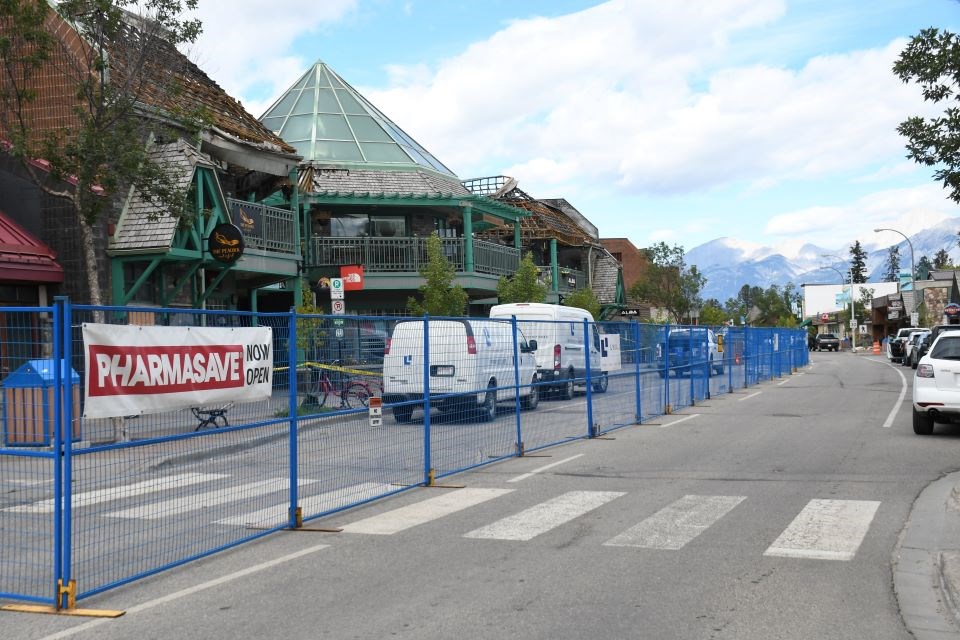The Municipality of Jasper is hoping to provide tax relief to residents who lost their homes, but not without the support of the Alberta government.
Along with approving the conditional tax relief, council also requested the Government of Alberta provide funding to offset losses in core municipal revenue from 2024 to 2027.
“The impact of the wildfire obviously has broad and deep social impacts across our community, but it also has a very practical impact that the municipality needs to account for,” CAO Bill Given told council during Tuesday’s (Sept. 17) meeting.
With the Jasper Wildfire Complex destroying around 30 per cent of structures in the municipality, including over 800 housing units, the municipality is estimating a $283 million loss in property tax assessment.
While Alberta’s Disaster Recovery Program (DRP) assists municipalities with extraordinary expenses, requiring a 10 per cent municipal cost share, Given noted that the program does not address municipal revenue losses.
To provide relief for residents, the municipality will cancel or refund the municipal portion of property taxes and the Evergreens Requisition for the remainder of the year after Aug. 16 to every property that became uninhabitable or inoperable due to the wildfire.
In addition, the municipality will cancel 1/12 of the tax for all residential and commercial properties that had to evacuate.
These measures are subject to provincial financial support. Council also requested the province to cancel or refund the 2024 education tax levy to be consistent with the cancellation of the municipal portion.
The total loss in property tax revenue would be more than $2 million, and an additional $1 million will be lost if financial relief is provided for properties that were evacuated during the evacuation period.
The loss is equivalent to about 30 per cent of the municipality’s 2024 budget. The municipality would also see a $1.7-million loss due to a lack of revenue from paid parking, utilities and transit fares during the evacuation.
Without support from the province, Given said the municipality would either need to drastically reduce spending or shift the burden to the remaining properties next year.
Paul Butler, executive director of the Jasper Park Chamber of Commerce, told council that the chamber supported the tax relief. He noted that more than 40 businesses had been destroyed during the fire.
“The loss of all those businesses is likely to lead to serious economic deterioration over the next several years, and the chamber is really concerned about that,” Butler said. “I think it’s going to be important to recognize that the loss of commercial infrastructure will have a disproportionate impact on the municipality’s income potential due to our asymmetrical mill rate.”
The loss of trade and commerce in the coming years could further impact assessment values over the coming years, adding further financial strain to the municipality.
Mayor Richard Ireland noted that it was important to emphasize this fact to the provincial government.
“We have not hit the bottom yet,” he said. “We will still suffer further assessment-based deterioration next year based on the loss of income.”
Coun. Rico Damota noted that council should escalate the advocacy for tourism-based economies, highlighting how a third of the municipal budget goes toward supporting visitor services.
Damota also had concerns about the 10 per cent municipal cost share for the Disaster Recovery Program.
“I think that we need to advocate strongly at higher levels to make up and find that extra 10 per cent so that we're not putting that burden on the existing properties that are here,” he said.
Mayor Ireland agreed that even before the wildfire, Jasper had faced unique fiscal challenges with supporting a large visitor base with a small tax base.
As an example, he noted how four times as many visitors were evacuated from the community compared to residents.
“Without financial support from other levels of government, the province in particular, our community will face insurmountable challenges and extremely difficult decisions which will impact our residents and service levels and ultimately impact our tourism-based economy,” Ireland said. “And so, I support this motion, but recognizing that, in essence, we are not seeking a grant or a subsidy from the province. I see this as an investment by the province in our tourism economy.”




